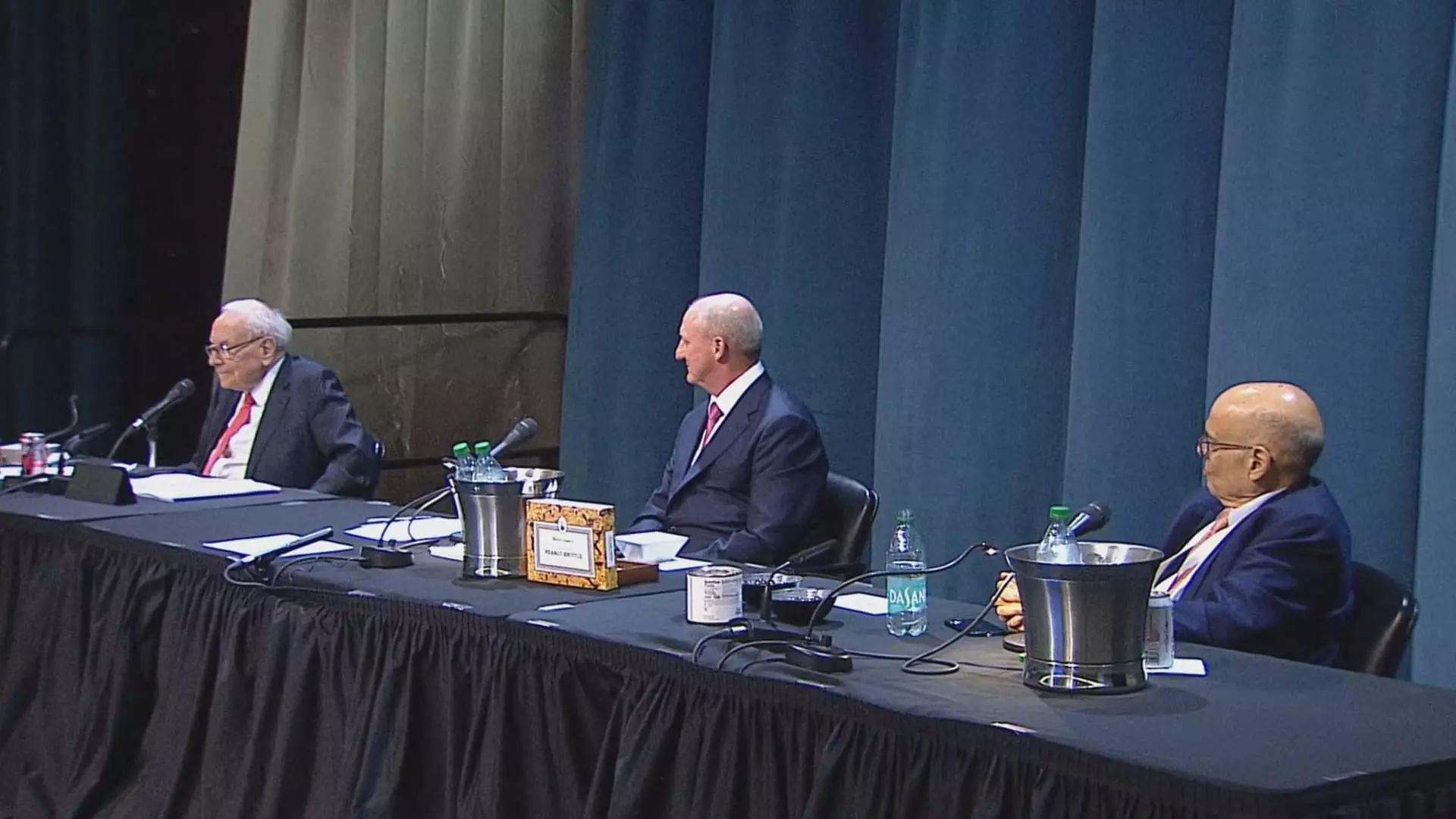As Warren Buffett prepares to step down as CEO of Berkshire Hathaway in 2025, the business world brims with a mix of nostalgia and anticipation. His exit marks the end of a 60-year legacy that has profoundly shaped investing paradigms across the globe. While many are gearing up for the farewell at next year’s annual meeting, there is something poignant about what Buffett’s departure signifies—not just for his supporters, but also for the broader economic landscape his decisions have influenced. This iconic figure, referred to as the “Oracle of Omaha,” commands respect not merely for his wealth but for his forthrightness in discussing market dynamics, life lessons, and controversial subjects like real estate investment.
Why Real Estate Falls Short Compared to Stocks
Buffett’s candor regarding real estate often raises eyebrows. During his annual meetings, he has made it clear that he finds real estate transactions burdensome as compared to the seamlessness of stock buying and selling. “Real estate is harder than stocks,” he states, emphasizing the cumbersome nature of negotiations and the complexities of property ownership. This assertion is not merely a preference; it’s a reflection of his pragmatic approach to investment. While others may romanticize real estate as the ultimate asset, Buffett brings to light the practical challenges involved.
By framing real estate as a tedious process, he inadvertently critiques an entire sector that many people invest in with emotional fervor. The truth is, the stock market rewards those who are less emotionally tethered to their investments. Buffett’s view can be interpreted as a rallying cry for rational investing over emotional attachment, offering valuable advice for both novice and seasoned investors.
Hidden Gems in Japanese Markets
One of the more fascinating elements of Buffett’s investing philosophy involves his foray into Japanese trading companies, known in Japan as “sogo shosha.” He unearthed these opportunities not through exhaustive market analysis but rather by stumbling upon them in a handbook. This simple act exemplifies a critical component of Buffett’s investment strategy—browsing potential prospects rather than getting bogged down in complex algorithms and statistics. Buffett underscores that effective investing can stem from simplicity and curiosity rather than obsessive number-crunching. It begs the question: are modern investors overly focused on data analytics while overlooking gut instinct and research?
Moreover, his commitment to holding such investments for decades reveals a steadfast belief in long-term value, a sentiment that today’s fast-paced investment culture often neglects. This kind of foresight and patience is becoming increasingly rare in the high-speed, algorithm-driven stock market we see today.
Power of a Few Effective Ideas
Buffett frequently cites a principle that his most profitable ventures have emerged from a mere handful of effective ideas over decades. When he mentions that Berkshire Hathaway profited significantly from about eight core investments, he shakes the foundation of modern investing ideology that promotes constant trading and diversification. This tenet challenges the narrative that one must endlessly seek new investments to achieve success. In today’s culture of instant gratification, this perspective is radical; it highlights patience as a virtue—something counterintuitive in a world where speed and volume are king.
The idea that abundance comes from scarcity prompts investors to consider where they may overextend themselves—both in portfolio diversification and emotional investment. Buffett compels us to ask: Are we missing out on potential “home runs” because we’re too busy swinging at every pitch?
A Financial Gem: The Insurance Float
Buffett’s discussions on the insurance float serve as a testament to his misfit genius. The ability to utilize premium dollars, kept temporarily before claims are paid, as an investment is encapsulated in his declaration that such float represents “absolutely free money.” This poignant observation illustrates his unique understanding of capital structure and risk management. In a world where corporations prioritize short-term profits, Buffett takes a long-term view. He acknowledges potential setbacks, yet his record in underwriting reinforces his conviction that with calculated risk comes significant reward.
The confidence he instills in his methods raises the stakes for other investors to reconsider their approaches: are we effectively harnessing the passive income potentials available to us? As monetary policy evolves and markets fluctuate, such insights will be invaluable for those astute enough to heed his counsel.
Beyond Income Statements: The Real Story in Balance Sheets
Buffett’s nuanced understanding of financial statements is another testament to his strategic mindset. He emphasizes that balance sheets can often reveal the true health of a company more effectively than income statements. While mainstream financial education heavily leans on income metrics, Buffett’s perspective challenges this norm, highlighting a more holistic approach to evaluating corporations. This insight leads us to question whether investors are overly fixated on immediate figures rather than recognizing the broader implications of a company’s financial health.
This divergence in analysis capabilities may present a competitive edge for Buffett aficionados. By tuning into the less glamorous but highly instructive aspects of financial reporting, investors might be able to cultivate a more profound comprehension of market movements, facilitating better decision-making.
As we approach the era post-Buffett’s leadership, these insights demand reflection not just for their financial implications but for their potential to reform our investing ethos. Buffett’s philosophy of patience, simplicity, and strategic focus serves as a timeless guide amidst the noise of modern finance.

